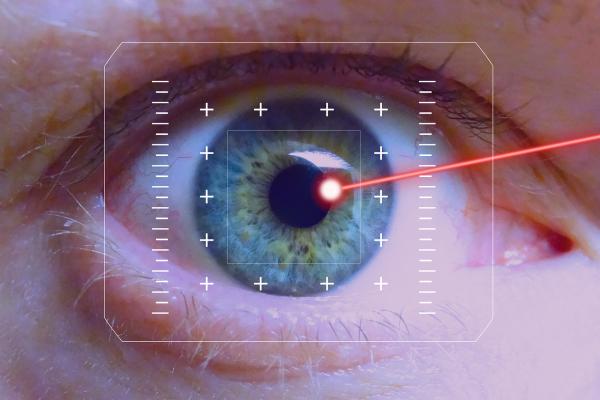The Department of Veterans Affairs is the federal government's second-largest department. As of 2021, it operated approximately 1,600 healthcare facilities, 144 medical centers, and 1,232 outpatient sites of varying complexity. The VA has long been plagued by a wide spectrum of problems, including long delays in scheduling appointments, substandard care, and years of trying to get a $10 billion electronic system to work effectively.
As a veteran myself (I have never received medical care through the VA, though I did numerous medical school clinical rotations at a VA hospital), I know that veterans deserve better. And yet, the VA seems to be committed to a change in policy that would further degrade the quality of their care—specifically, by allowing underqualified practitioners to perform laser eye surgery. But more of that in a moment.
Here's my own story of healthcare provided by the government... During my post-doc years at the NIH, I was a Commissioned Officer in the U.S. Public Health Service, and I got my medical care across the road at Bethesda Naval Hospital. (That was not a VA facility, but belonged to the Department of Defense.) At one point, I had an infected, ingrown toenail that needed to be opened up and cleaned out and part of the nail removed, and when I appeared for the appointment, the "surgeon" was a young-looking guy. I asked him whether he was regular Navy, and he answered that he was a reservist who was on his one-month-a-year active duty service. I inquired what his regular, full-time job was. Answer: Mortuary attendant.
Mortuary attendant?!
I put on my shoes and socks and left and went to a real surgeon.
Now, to the VA's foibles. Last September, the VA modified its eye-care guidelines for treatment from community providers by letting optometrists, who are neither medical doctors nor surgeons, perform some surgical procedures. Without soliciting input from the public or medical community, it removed language from the Community Care guideline, which had ensured that "only ophthalmologists can perform invasive procedures, including injections, lasers, and eye surgery." This change permits optometrists to perform surgical procedures such as laser trabeculoplasty—an operation on the eye to treat glaucoma—rather than restricting them to ophthalmologists (who are highly trained, experienced, qualified surgeons), as had been the policy. The change will be felt immediately in a small number of states that already allow optometrists to perform laser surgery. But the VA is considering a broader policy change that would make it possible for optometrists in all VA facilities to perform these procedures.
The differences in the amount of training and the scope of competence between optometrists and ophthalmologists are vast. Ophthalmologists log over 17,000 hours of clinical experience in general medicine, surgery, and emergency management during medical school and specialized postgraduate training. Throughout their medical training, they must complete a minimum of 3,000 patient visits to ensure that they acquire the expertise needed to diagnose and treat a wide variety of eye conditions. Surgical procedures will be their primary focus in their subsequent, post-training practice. Further, they must take Continuing Medical Education courses to retain their board certification, so they typically keep up with new developments.
By contrast, optometry is a four-year degree program focusing on primary eye care—providing routine eye exams and vision tests, prescribing and fitting eyeglasses and contact lenses, and monitoring for eye conditions related to diseases such as diabetes. Learning and practicing how to perform surgical procedures safely with lasers is a minimal part of the curriculum.
Why would the VA make such a dubious change? It claims that it wants to provide easier access to veterans needing trabeculectomies, but there are no documented shortages of ophthalmologists to offer these services. Moreover, laser eye surgery for glaucoma is not an emergency. It can be done on an outpatient basis, so vets should be able to find an ophthalmologist virtually anywhere in the country.
Entrusting eye surgery to an optometrist is like letting the technician who changes oil at the local drive-through Oil Pal do a tune-up on a $200,000 Lamborghini. The VA must reverse this unwise decision, which both insults and endangers America’s veterans. If they are unwilling to do it, the White House and Congress should act.
Note: An earlier version of this article was published by City Journal.




